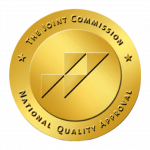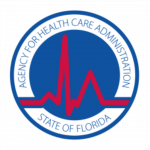Loving someone who is an addict, whether struggling with drugs or alcohol, is never easy. For families and friends of individuals with substance abuse disorder, it can be hard to accept that they have a problem. Once they do come to terms with this, oftentimes they don’t know what to do next. The experts at Harm Reduction Center have come together to go over how to know if your loved one has an addiction and how you can help.
The Signs of an Addict
It’s common for an addict’s loved ones to put on rose-colored glasses and pretend there isn’t a problem. It is difficult to admit a loved one is struggling with substance abuse. Unfortunately, ignoring the problem will not make it go away. If you’re unsure that your loved one is addicted, here are some signs.
- Seeming high or drunk more and more
- Impaired cognition and memory
- Irregular sleeping habit, lethargic
- Issues at work and school
- Only attending social events high or drunk
- Stealing in order to use drugs or alcohol
- Lying about drug use
- Becoming emotional when questioned about drugs
- Neglecting hygiene
An individual experiencing substance abuse disorder will have other signs and symptoms. However, these signs may be the ones most visible to those closest to them. This person may also begin to only associate with other users and grow distant in order to hide their problem.
Codependency and Enabling
When someone is close to a person struggling with addiction, they may end up enabling them or in a codependent relationship. This can seem like helping the addict, but it really only supports the addict’s troublesome behavior. It’s important to recognize this desire to help is coming from a good place. Some behavior to look for:
- Sometimes an individual tries to help an addict by taking responsibility for them. An example can look like giving them a ride so they avoid a DUI. Another example would be making excuses for them when they are behaving irresponsibly.
- Getting caught up in putting the addicts needs or feelings before their own. If you’re feeling neglected or not heard, you may be putting the addicts feelings first. This can look like a one-sided relationship.
- Letting the fear of rejection or abandonment rule the relationship. For example, if you give them money or housing to avoid a fight or maintain the relationship and their happiness.
- A lack of personal boundaries. Do you find yourself saying “yes” even when you want to say “no”?
Any relationship has the potential to become codependent when substance abuse is part of the equation. It is crucial that the person with addiction gets treatment and therapy. On the other hand, it is also important for the other party to receive therapy if they feel they have problems with enabling.
How Can I Help an Addict
The way to help an addict can seem illogical, but they come from a good place where the goal is for the person to get help and overcome their addiction.
- Keep in mind addiction is a disease
- The individual has to manage their addiction
- Set boundaries
- Encourage them to get help
- Get help from a therapist for yourself
- Set an example and remain sober
- Be supportive while letting the addict deal with the consequences of their behavior
- Do your best to stay calm and positive
Expect Obstacles
Being close to someone who has an addiction is a tough road. When you decide to challenge their behavior and talk to them about their problem, expect difficulties. The individual who’s addicted:
- May be in denial about their problem
- May not be ready to change or get help
- May feel embarrassed or defensive
- May feel uncomfortable
- May use the addiction to self medicate a mental illness
- May get angry or have an emotional outburst
The reality is, when it comes to addiction there is no quick fix. A person who has substance abuse disorder will need willpower and determination to recover. Furthermore, they have to want and desire to get better.
As a loved one all you can do is support them in their recovery without enabling them. At Harm Reduction Center in Boynton Beach, Florida we offer family services, as well as addiction treatment.














